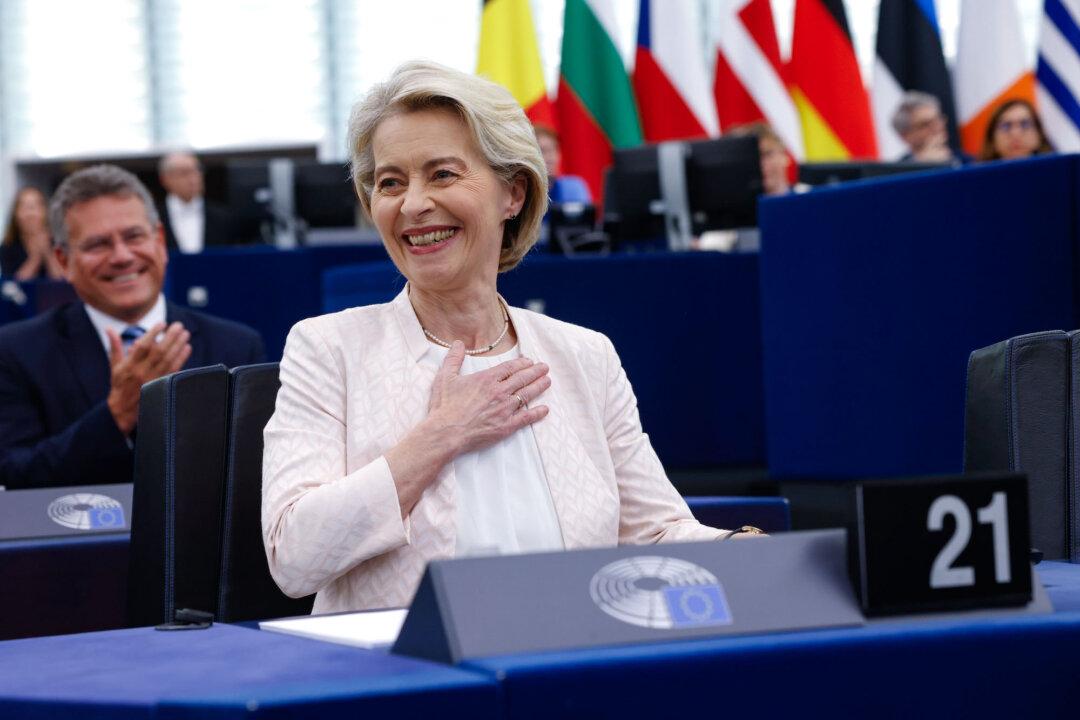Ursula von der Leyen has been reelected to a second 5-year term at the helm of the European Union’s executive body, with the 65-year-old former German defense minister promising to bolster European prosperity, staying the course on climate action, and calling for more military investment while warning that Europe’s liberty is in peril for the first time in decades.
Ms. von der Leyen won reelection in a July 18 vote in the European Parliament, with 401 members voting in favor, 284 against, and 22 casting blank or invalid votes.





